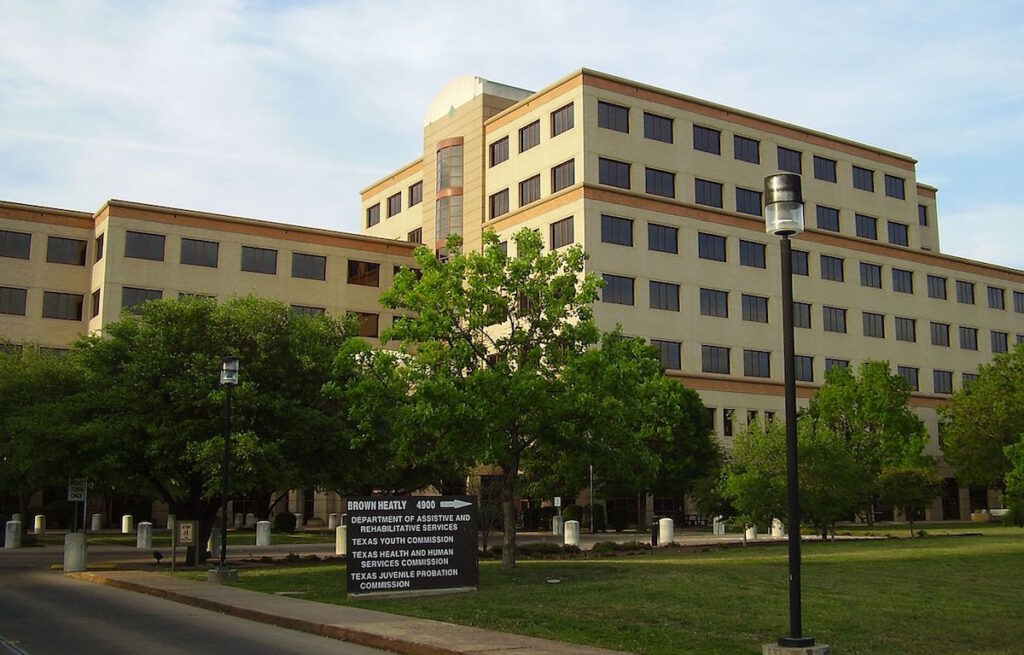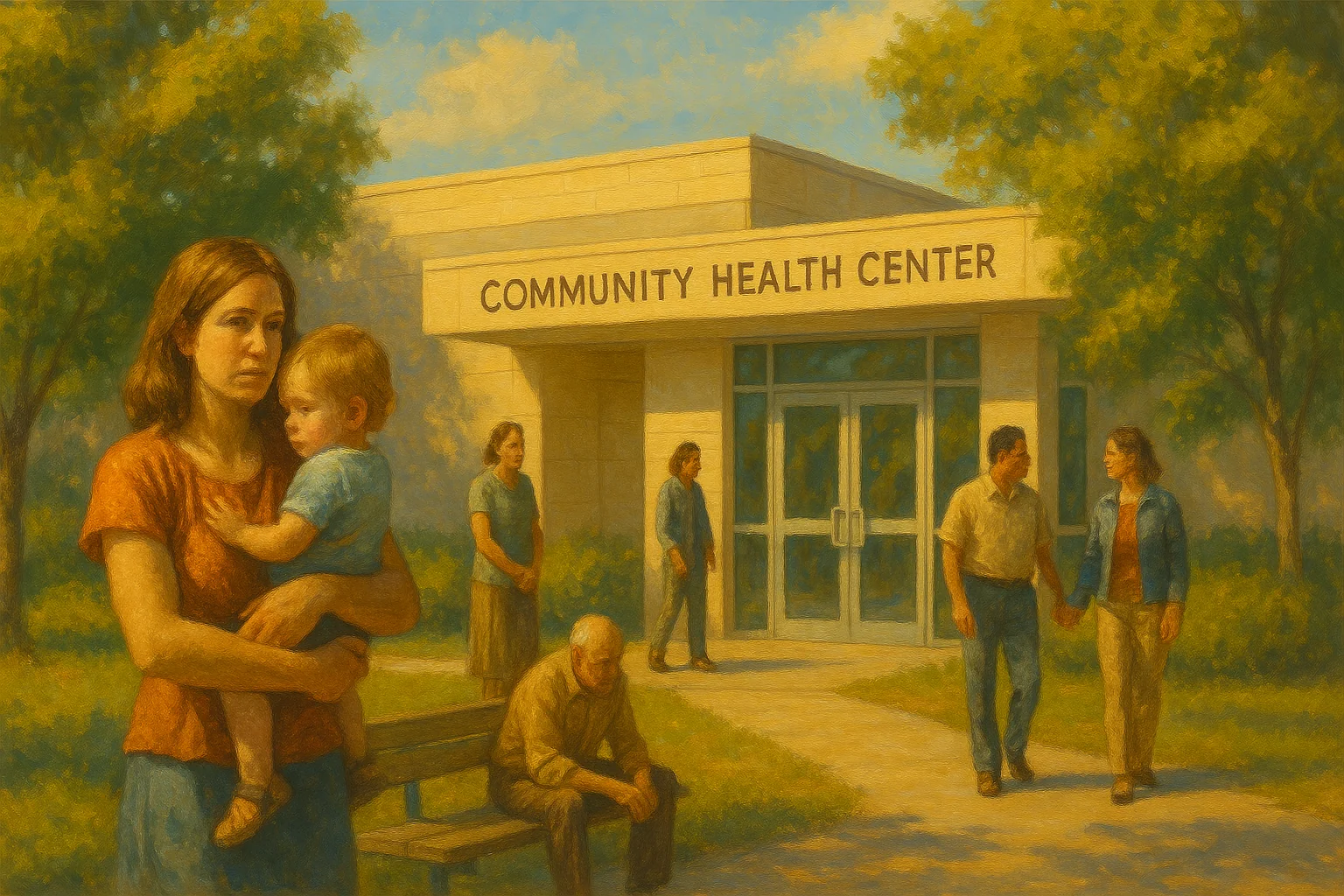The Texas Health and Human Services Commission (HHSC) is responsible for overseeing a broad range of health and human services in the state. This includes regulating nursing homes, supervising the state’s Medicaid managed care system, licensing child care providers, and overseeing the Department of State Health Services (DSHS). The commission’s mission is to enhance the health, safety, and well-being of Texans by improving access to healthcare services and support programs.
State law defines HHSC’s key objectives as reducing the incidence of disease and disabling conditions, reducing infant death and disease, improving access to health services, reducing substance abuse, reducing school dropouts, reducing teen pregnancy, and increasing support services for people with disabilities.
In recent years HHSC and DSHS played key roles in Texas’s response to the COVID-19 pandemic, coordinating testing, vaccine allocation, public dashboards, and emergency guidance for healthcare providers and nursing facilities. The agencies continue to lead statewide emergency preparedness and disease surveillance efforts.
Management of Federal Programs
HHSC administers multiple federal assistance programs that support millions of Texans each month. These include:
- Women, Infants, and Children (WIC) Program: Delivering nutritional support, education, and healthcare referrals to low-income pregnant women, new mothers, and young children.
- Medicaid and the Children’s Health Insurance Program (CHIP): Providing healthcare coverage to low-income individuals, families, pregnant women, and children.
- Supplemental Nutrition Assistance Program (SNAP): Offering financial aid to assist eligible individuals and families in purchasing food.
- Temporary Assistance for Needy Families (TANF): Providing temporary financial support and employment assistance for qualifying families.
State Psychiatric Hospitals
In addition to administering health programs, HHSC operates a network of psychiatric hospitals that provide critical mental health services. These facilities include:
- Austin State Hospital
- Big Spring State Hospital
- El Paso Psychiatric Center
- Kerrville State Hospital
- North Texas State Hospital
- Rio Grande State Center
- Rusk State Hospital
- San Antonio State Hospital
- Terrell State Hospital
- Waco Center for Youth
These state hospitals offer specialized services such as inpatient psychiatric care, child and adolescent mental health services, forensic competency restoration, and support for individuals with intellectual or developmental disabilities. While many patients stay only a few days to weeks for stabilization, others may require long-term care.
Community Outreach and Advocacy
HHSC actively works to connect residents with vital health services. Through initiatives like the “Healthy Texas” campaign and mental health awareness programs, the commission educates the public on Medicaid eligibility, substance abuse prevention, maternal health, and other healthcare resources. Special outreach efforts target rural areas and underserved populations.
Agency Structure
HHSC is headed by an executive commissioner who is appointed by the governor. The commissioner is advised by an executive council, which meets at least four times a year. The executive commissioner has policymaking authority over the Department of State Health Services (DSHS), but day-to-day management is handled by the DSHS commissioner.

HHSC coordinates many specialized advisory committees, including the Aging Texas Well Advisory Committee, Drug Utilization Review Board, Council on Sex Offender Treatment, Hospital Payment Advisory Committee, Medical Advisory Board, and Texas Autism Council.
The commission is headquartered in Austin and has 11 regional offices throughout the state. As an oversight and policymaking agency, HHSC houses an Office of Inspector General, Internal Audit Division, and Office of Policy and Performance.
HHSC’s Office of Inspector General (OIG) investigates fraud, waste, and abuse in programs such as Medicaid and SNAP, conducts audits and inspections, and issues public reports to promote accountability.
Predecessor Agencies
HHSC was created in 2016-2017 as a consolidation within the state health and human services system. The Legislature abolished several state agencies when it created HHSC and transferred their responsibilities to HHSC, including the Department of Assistive and Rehabilitative Services, and the Department of Aging and Disability Services.



